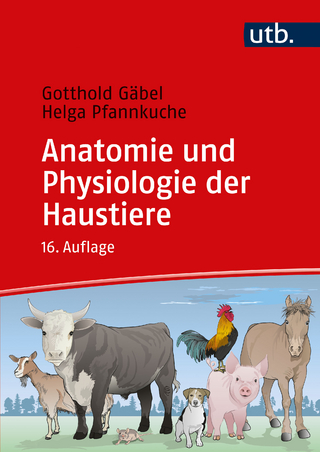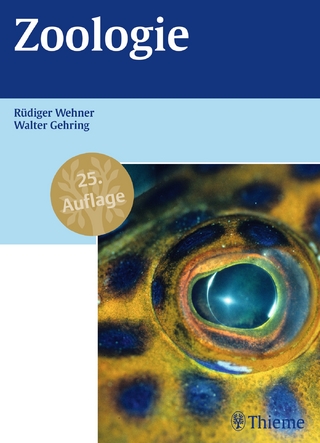
Sustainable Use of Feed Additives in Livestock
Springer International Publishing (Verlag)
978-3-031-42854-8 (ISBN)
This book offers a comprehensive collection of cutting-edge research on feed additives for a sustainable animal production, including insects and aquaculture. In five clearly structured sections, the sources of feed additives, details on their biochemistry, feed security as well as specific applications for individual farm animal species, livestock health and product characteristics (meat, milk and eggs) find attention. International expert authors provide a full description on the use of aromatic plants, extracts and essential oils as feed additives alone or in combination with functional feeds of different categories.
Readers will explore the potential of feed additives to tackle environmental issues. Practical examples include the use of local feedstuffs in combination with herbal additives and enzymes. Emphasis is placed on the consequences of using local feed sources versus imported feedstuffs on global warming potential, primary energy use, nutrient excretion and the feedadditive influence on lessening the pollution from animal operations. The results presented will support realization of the Sustainable Development Goals, in particular SDG 12 which stands for Responsible Consumption and Production worldwide.The use of novel and different feed additives can be an important tool to enhance sustainability, support productivity, and match increased food demands around the globe. Animal production depends on feed efficiency to sustain growth and profitability. Along these lines, the present volume is an essential reading for all future-oriented veterinarians, animal nutritionists, agricultural scientists, and moreover the feed, food and plant industry.lt;b>Prof. Georgios Arsenos has over 25 years of experience in Animal Science research and education. He is an academic with well-established international links in research and extension services to industry. His scientific expertise includes veterinary medicine, animal breeding and genetics, data analysis and sustainability of livestock production systems. He held research and academic positions in the UK and has been leader or partner in several National, industry and EU-funded research projects (104 research projects; coordinator in one EU funded). Highlights of service outside the university include numerous seminars for farmers, regular farm visits to individual farms, farm cooperatives and dairies that have a contract for extension services with the Laboratory of Animal Husbandry. He is author of one book and co-author in 2 books and several technical papers as well as more than 136 papers in refereed journals (1745 citations, h-index: 23). He participated in numerous national and international conferences either as invited speaker or lecturer with over 300 presentations. He acts as reviewer in several scientific journals.
Assoc. Professor, Ilias Giannenas, DVM, PhD, Dip ECPVS, Director of Laboratory of Nutrition, is a veterinarian and Associate Professor at the School of Veterinary Medicine, Faculty of Health Sciences, Aristotle University of Thessaloniki. Formerly he served as Lecturer in the Veterinary Faculty of University of Thessaly. He did sabbatical studies in Newcastle University to investigate the interaction between dietary fibre and coccidiosis in broiler chickens. He is particularly interested in issues of applied poultry nutrition, the use of aromatic plants, plant extracts and essential oils as alternative growth promoters or natural anticoccidials. He is co-author of 3 books, 12 book chapters and over 100 papers in refereed journals. He regularly serves as invited speaker in national or international congresses and presented more than 100 conference papers. He has been scientifically responsible or member of the research group in more than 30 projects and established collaboration with the feed and feed additive industry. He served as reviewer and editorial board member for several journals and evaluated national and international projects. His work has more than 3000 citations and an h-index of 33.
Part I. Introductory Chapters and Historical Abstract.- Feed Additives to Ensure Sustainability.- Feed Additives, Their Role and Technological Properties.- Food Additives as Functional Ingredients in Food Products.- History of Feed Additives.- Part II. Sources and Types of Feed Additives.- Enzymes as Feed Additives.- Medicinal and Aromatic Plants as a Source of Potential Feed and Food Additives.- The Role of Insects in Novel Sustainable Animal Production Systems.- Probiotics, Prebiotics, Paraprobiotics, Postbiotics.- Novel Plant Extracts as Food Additives.- The Use of Feed and Food Additives in USA.- Part III: Biochemistry and General Effects.- The Effects of Feed Additives on Farm Animals under Heat Stress Conditions.- Feed Additives as Antiviral Agents.- Food and Feed Additives to Counteract Mycotoxin Toxicity in Human and Animals.- Part IV. Specific Applications in Livestock by Animal Groups.- Plant-Based Feed Additives for Livestockand Poultry in Southern Africa.- Plant-Based Feed Additives for Livestock and Poultry in Southern Africa.- Feed Additives to Combat Intestinal Diseases in Antibiotic Free Poultry Farming.- The Effects of Feed Additives on the Immune System of Poultry.- Application of Aromatic Plants and Their Extracts in Livestock.- Improving the Sustainability of Laying Hen Production Using Plant-Based Feed Additives.- Application of Feed Additives in the Diets of Turkeys.- Effect of Phytochemical Feed Additives on Health Status, Milk Yield and Quality Characteristics in Ruminants.- Feed Additives as Dietary Tools to Improve Welfare Status in Ruminants.- Application of Feed Additives to Improve Pork Meat Quality.- Feed additives, as Dietary Tools to Support Gut Health of Pigs.- Feed Additives as Immune Boosting Factors in Swine Health.- Probiotics as Feed Additives in Monogastric Animals.- Feed Additives for Insect Production.- Feed Additives in Aquaculture.- Certain Major Diseases Having Nutritional Disorders in Their Etiology and Economic Importance in Horses.- Feed Additives in Rabbit Nutrition to Ensure Sustainability.- Part V: Analytical Methods, Future Outlook and Perspectives.- Modern Applications in the Determination of Food and Feed Additives.- Antimicrobials as Feed and Food Additives, Their Technological Properties and Perspectives.- Feed Additives and Future Perspectives.
| Erscheinungsdatum | 31.12.2023 |
|---|---|
| Zusatzinfo | XIV, 969 p. 60 illus., 47 illus. in color. |
| Verlagsort | Cham |
| Sprache | englisch |
| Maße | 155 x 235 mm |
| Gewicht | 1752 g |
| Themenwelt | Naturwissenschaften ► Biologie ► Zoologie |
| Veterinärmedizin | |
| Weitere Fachgebiete ► Land- / Forstwirtschaft / Fischerei | |
| Schlagworte | Animal nutrition • Animal Production • Feed Additive • Functional Feed • Functional Foods • livestock nutrition • Nutraceuticals • Responsible Consumption and Production • SDG 12 • Sustainable Animal Agriculture • Sustainable Animal Production • Sustainable Development Goal |
| ISBN-10 | 3-031-42854-4 / 3031428544 |
| ISBN-13 | 978-3-031-42854-8 / 9783031428548 |
| Zustand | Neuware |
| Informationen gemäß Produktsicherheitsverordnung (GPSR) | |
| Haben Sie eine Frage zum Produkt? |
aus dem Bereich


